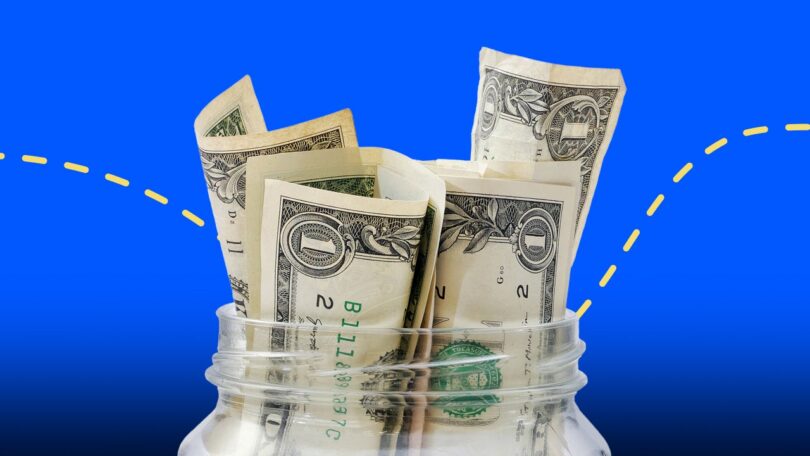When it comes to growing your wealth, choosing the right investment strategy can feel like a balancing act between risk and reward. You want to make sure your hard-earned money is safe, while also giving it the potential to grow steadily over time. For many, the ideal solution is a mix of low-risk, stable investment options that offer peace of mind and a gradual increase in value. Here, we’ll delve into the top six safe places to invest your money, ensuring you’re well-equipped to make confident, informed financial decisions.
Introduction: Why Safe Investments Matter for Financial Health
In an increasingly unpredictable world, finding safe places to invest your money is essential for protecting your financial future. Safe investments are designed to provide a cushion against market volatility and economic downturns, offering a reliable means of wealth preservation. Whether you’re planning for retirement, a future major purchase, or simply wish to grow your savings, having a diversified portfolio of low-risk options ensures you’re safeguarded against unexpected losses. Here’s how these six investments can offer you peace of mind and steady returns.
Invest Money Wisely With These Safe Investment Options
High-Yield Savings Accounts
High-yield savings accounts provide an accessible and low-risk way to grow your money without tying it up for extended periods. These accounts generally offer much higher interest rates than traditional savings accounts, making them ideal for anyone looking to maximize the value of their emergency fund or short-term savings.
- Benefits: High-yield accounts are highly liquid, meaning you can withdraw funds anytime without penalty. Additionally, accounts at FDIC-insured banks protect up to $250,000, providing a safeguard in case the bank fails.
- Drawbacks: Interest rates may be affected by changes in the broader economy, and they typically don’t keep pace with high inflation over long periods.
Certificates of Deposit (CDs)
Certificates of Deposit (CDs) are one of the safest places to invest your money due to their fixed interest rate and FDIC insurance. With CDs, you commit your money for a specified term, ranging from a few months to several years, in exchange for a guaranteed return.
- Benefits: CDs offer predictable returns, and longer-term CDs often provide higher interest rates. FDIC insurance covers CDs up to $250,000, reducing risk.
- Drawbacks: Early withdrawal from a CD usually incurs a penalty, so it’s best for money you don’t need immediate access to. The fixed interest rate may not keep up with inflation.
U.S. Treasury Securities
U.S. Treasury securities include bonds, notes, and bills, all issued and backed by the federal government, making them extremely low-risk. When you buy Treasury securities, you’re effectively lending money to the government in exchange for regular interest payments.
- Benefits: Treasury securities are known for their safety and reliability, with a near-zero chance of default. They’re also exempt from state and local taxes, offering extra savings for investors.
- Drawbacks: Treasury securities can have low returns compared to other investments. Longer-term bonds tie up money for extended periods, and early sales may yield less than the original investment.
Money Market Funds
Money market funds pool investor money to buy short-term, high-quality investments, such as Treasury bills, CDs, and corporate paper. Unlike money market accounts offered by banks, money market funds are a type of mutual fund and are often used as a stable, accessible investment.
- Benefits: These funds offer liquidity, stability, and generally higher returns than a regular savings account, making them a flexible place to invest money.
- Drawbacks: Unlike savings accounts, money market funds are not insured by the FDIC, meaning there is a minimal risk involved, though it is considered very low.
Municipal Bonds
Municipal bonds are issued by state and local governments to fund public projects, such as schools or highways. Known for their low risk and tax benefits, “muni bonds” are especially attractive for investors in higher tax brackets.
- Benefits: The interest earned is often exempt from federal income tax and, in some cases, state and local taxes. Municipal bonds offer relatively low risk and a steady income stream.
- Drawbacks: While safe, municipal bonds are not risk-free, and their value can fluctuate with interest rates. Additionally, returns can be lower than other investment options.
Dividend-Paying Stocks
Dividend-paying stocks represent companies that return a portion of profits to shareholders as dividends. Although stocks carry more risk than the other options listed here, established companies with a history of steady dividends can offer relatively stable returns.
- Benefits: Dividend-paying stocks provide both income through dividends and potential capital appreciation. Investing in blue-chip companies with a history of paying dividends is generally safer.
- Drawbacks: Stocks are subject to market volatility, which means they carry a higher risk than other options on this list. Even well-established companies can experience downturns.
How to Choose the Right Safe Investment Strategy
Deciding where to invest your money involves understanding your own financial goals, risk tolerance, and the time frame you’re working with. Here are some tips to guide your choice:
- Assess Your Goals: Are you saving for retirement, building an emergency fund, or planning a large purchase? Different objectives will influence which safe investment works best.
- Evaluate Liquidity Needs: Some investments, like high-yield savings accounts, are more liquid than CDs or bonds, making them better suited for shorter-term goals.
- Diversify: By spreading money across several low-risk investments, you’ll reduce your overall risk while maximizing potential returns.
Conclusion: Protect and Grow Your Wealth Safely
Investing your money doesn’t have to be a risky venture. By choosing safe places to invest your money such as high-yield savings accounts, CDs, Treasury securities, money market funds, municipal bonds, and dividend-paying stocks, you can build a financial portfolio that emphasizes security and stability. When you make thoughtful choices and spread your investments wisely, you’re well on your way to achieving your financial goals while safeguarding against unnecessary risk.
Frequently Asked Questions
What are the safest places to invest money?
The safest places to invest include high-yield savings accounts, certificates of deposit (CDs), U.S. Treasury securities, money market funds, municipal bonds, and dividend-paying stocks from established companies.
Why are high-yield savings accounts safe?
High-yield savings accounts are generally insured by the FDIC, protecting deposits up to $250,000. They offer easy access to funds and steady returns, making them ideal for those seeking a safe and liquid investment.
Is it safe to invest in Treasury bonds?
Yes, U.S. Treasury bonds are among the safest investments because they’re backed by the full faith and credit of the U.S. government. However, they offer lower returns compared to other investment options.
How do dividend-paying stocks work as a safe investment?
Dividend-paying stocks from established companies offer income through regular dividend payments. While stocks carry some risk, selecting well-established companies with consistent dividends can provide a balance between income and safety.
Are municipal bonds a good safe investment?
Municipal bonds are considered safe and provide tax advantages. However, returns may be lower than other investment types, and there is still a minor risk of default, though it’s uncommon.
Can I lose money in a CD?
CDs are generally safe as long as they are FDIC-insured and held to maturity. Early withdrawal may incur penalties, but otherwise, CDs offer guaranteed returns based on their fixed interest rates.








Leave a Comment